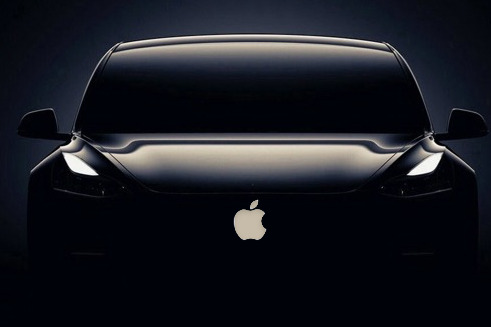The news of Apple’s electric vehicle project, Project Titan, grinding to a halt sent ripples through the tech and automotive worlds. While the project’s cancellation undoubtedly signifies the end of a long-held dream for some at Apple, it’s crucial to understand that this decision doesn’t translate to a financial catastrophe for the company. Let’s delve deeper into the reasons behind Apple’s decision and why the financial impact is less severe than some might anticipate.
A Market in Flux: Challenges Beyond Apple’s Control
Apple’s decision wasn’t solely driven by internal shortcomings. The broader EV landscape has undergone a significant transformation since Project Titan’s inception nearly a decade ago. The article highlights several key challenges that have dampened the industry’s initial enthusiasm:
- A Global Slowdown: The ongoing economic slowdown has cast a shadow over the entire automotive industry, leading to bankruptcies, production cuts, and a general sense of uncertainty. This has impacted not only established players but also hampered the growth of new entrants like Apple.
- Consumer Skepticism: While early adopters embraced the novelty of EVs, mainstream buyers remain hesitant. Concerns regarding the high upfront cost, long charging times, and a still-developing charging infrastructure continue to be major roadblocks for widespread EV adoption.
- Fierce Competition: The EV market has become increasingly competitive, particularly with the rise of Chinese manufacturers like BYD. These companies offer significantly cheaper EVs, making it difficult for new entrants like Apple, lacking established production lines and economies of scale, to compete on price.
Beyond the Market: Apple’s Internal Hurdles
In addition to the external challenges, Apple also faced internal limitations that hindered their ability to compete effectively in the EV market:
- Uncertain Battery Strategy: While the article mentions talks of partnerships, it seems Apple lacked a clear path forward for battery technology, encompassing design, manufacturing, and distribution. This is a crucial element for any EV manufacturer, and not having a solidified strategy would have put Apple at a significant disadvantage.
- Limited EV Expertise: Although Apple hired experts from established carmakers, it’s unclear whether they had successfully established their own EV production infrastructure or a dedicated manufacturing line. This lack of in-house expertise would have made it difficult to compete with established players who have years of experience in car manufacturing.
- Absent Supercharger Network: Unlike Tesla, which has built a comprehensive network of superchargers, Apple had no concrete plans for building its own charging infrastructure. This is a major differentiator and a critical factor for customer convenience, especially for long-distance travel.
Financial Impact: A Strategic Move, Not a Billions-Dollar Loss
While the exact amount spent on Project Titan remains undisclosed, the article suggests it wasn’t a significant financial drain for Apple. In fact, some investors welcomed the cancellation, viewing it as a strategic move that frees up resources for other areas like artificial intelligence, where Apple has a stronger foothold and potentially higher growth prospects. This sentiment is echoed in the article by Dan Morgan, a senior portfolio manager at Apple shareholder Synovus Trust, who described the cancellation as a “sigh of relief.”
The Road Ahead: Redeployment and Rethinking
With Project Titan now in the past, Apple will reportedly shift its focus towards areas where they have a proven track record and potentially higher growth opportunities. This likely involves redeploying resources and expertise into areas like artificial intelligence, where they can leverage their existing strengths and potentially achieve higher future growth.
Conclusion:
The cancellation of Project Titan signifies more than just the end of an ambitious project. It reflects the dynamic nature of the EV market, Apple’s limitations in this specific arena, and their strategic decision to focus on areas where they can excel. While the project’s end marks a missed opportunity, it doesn’t represent a significant financial loss for the company. Instead, it signifies a strategic shift towards areas where Apple can leverage its existing strengths and potentially achieve higher future growth.

